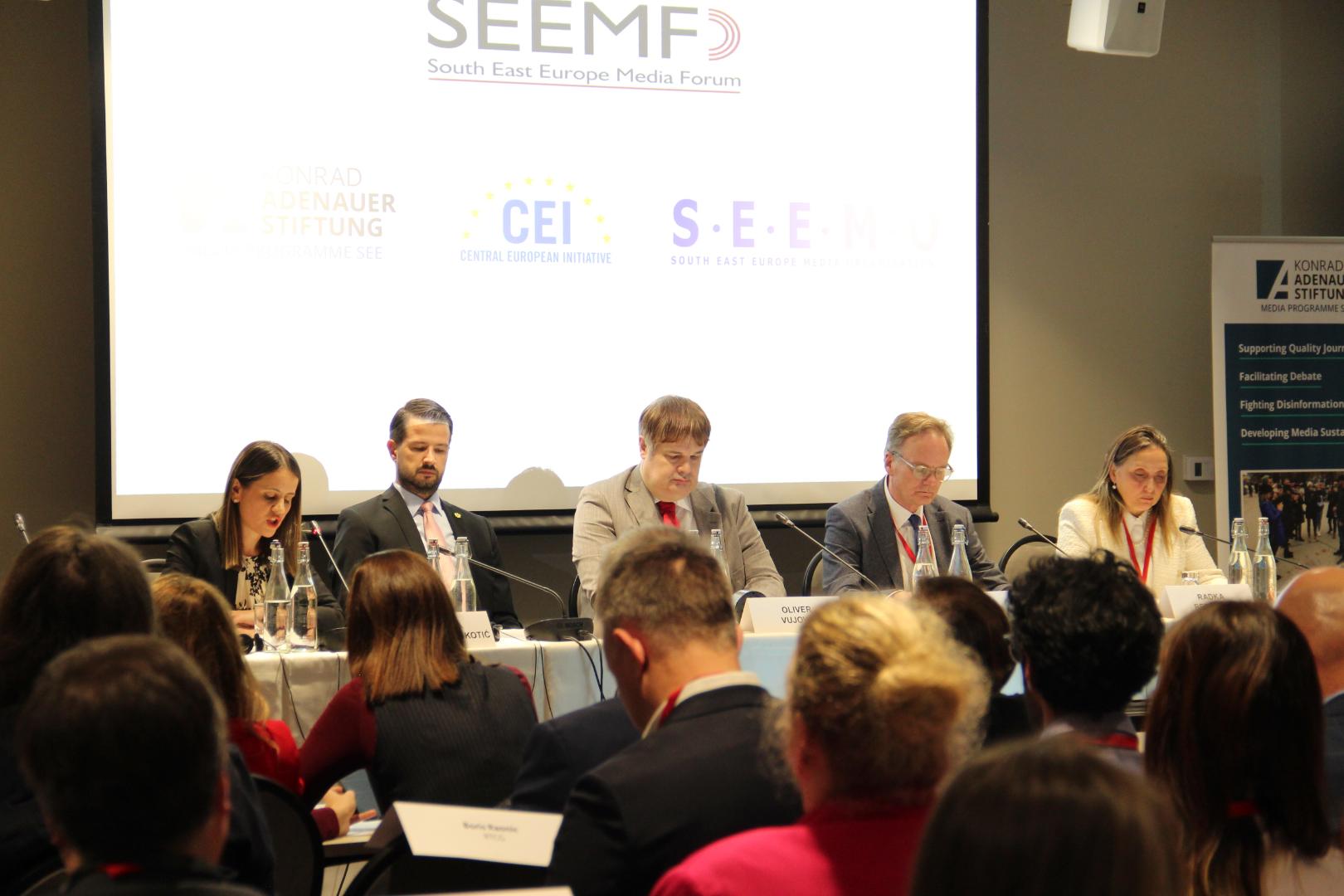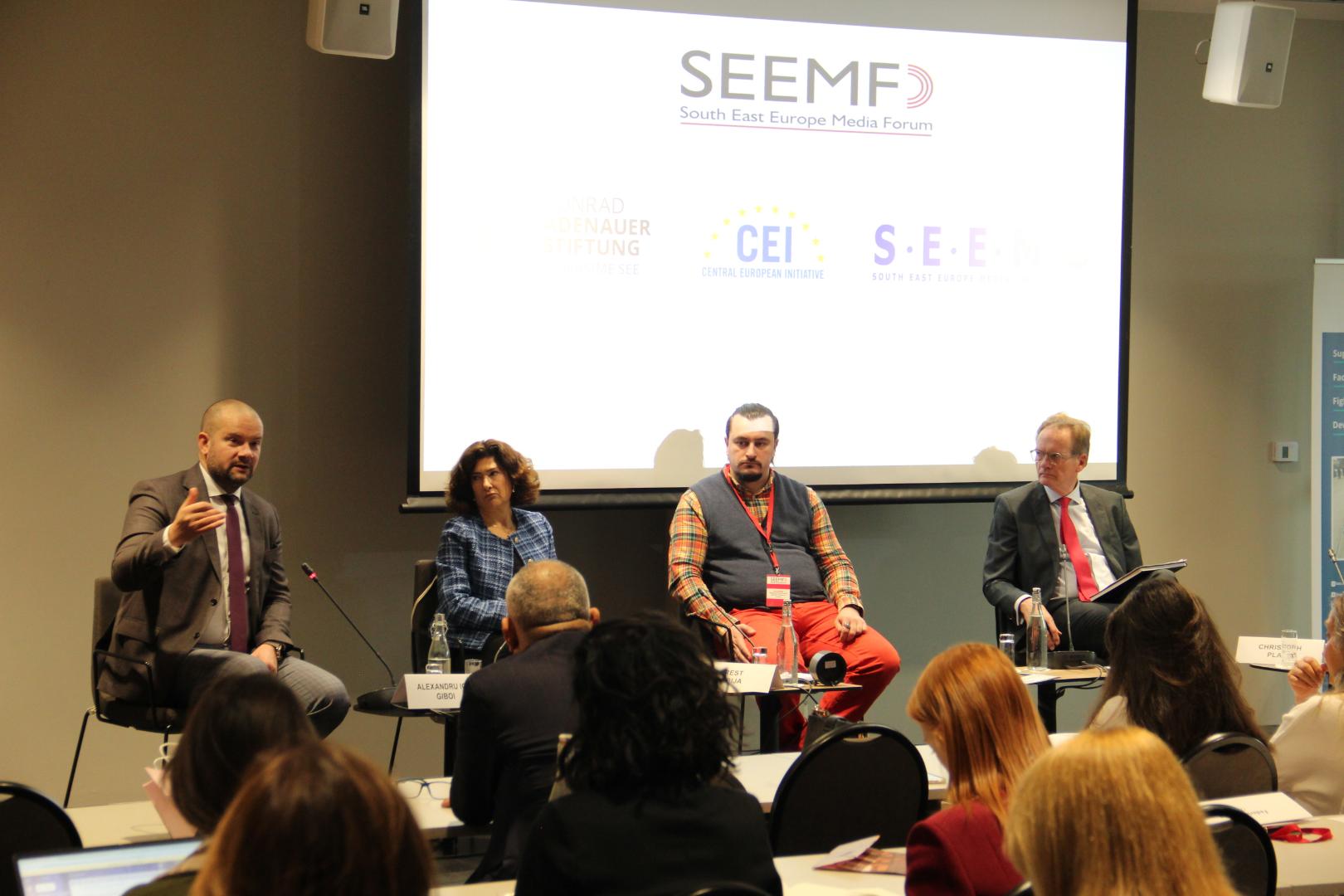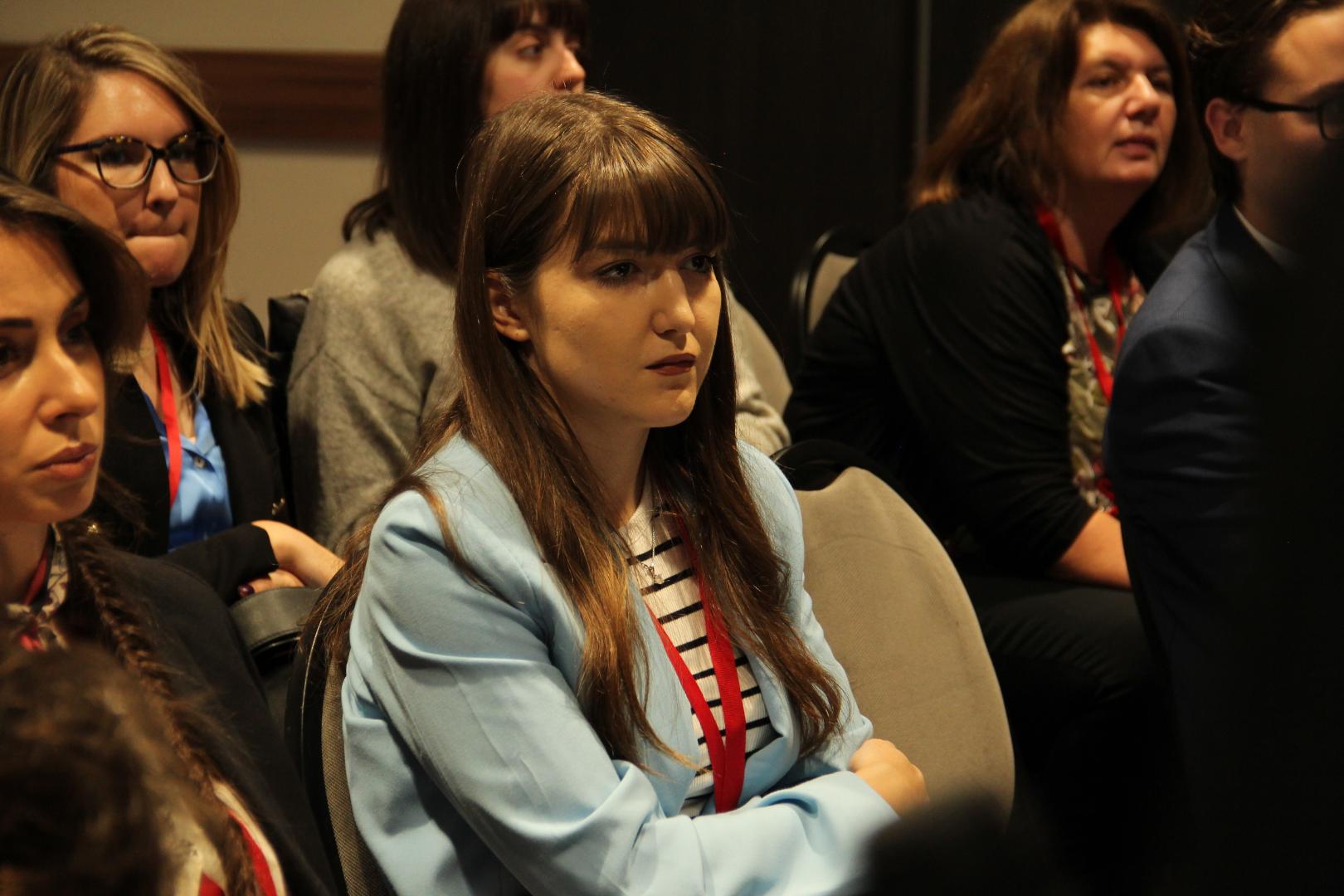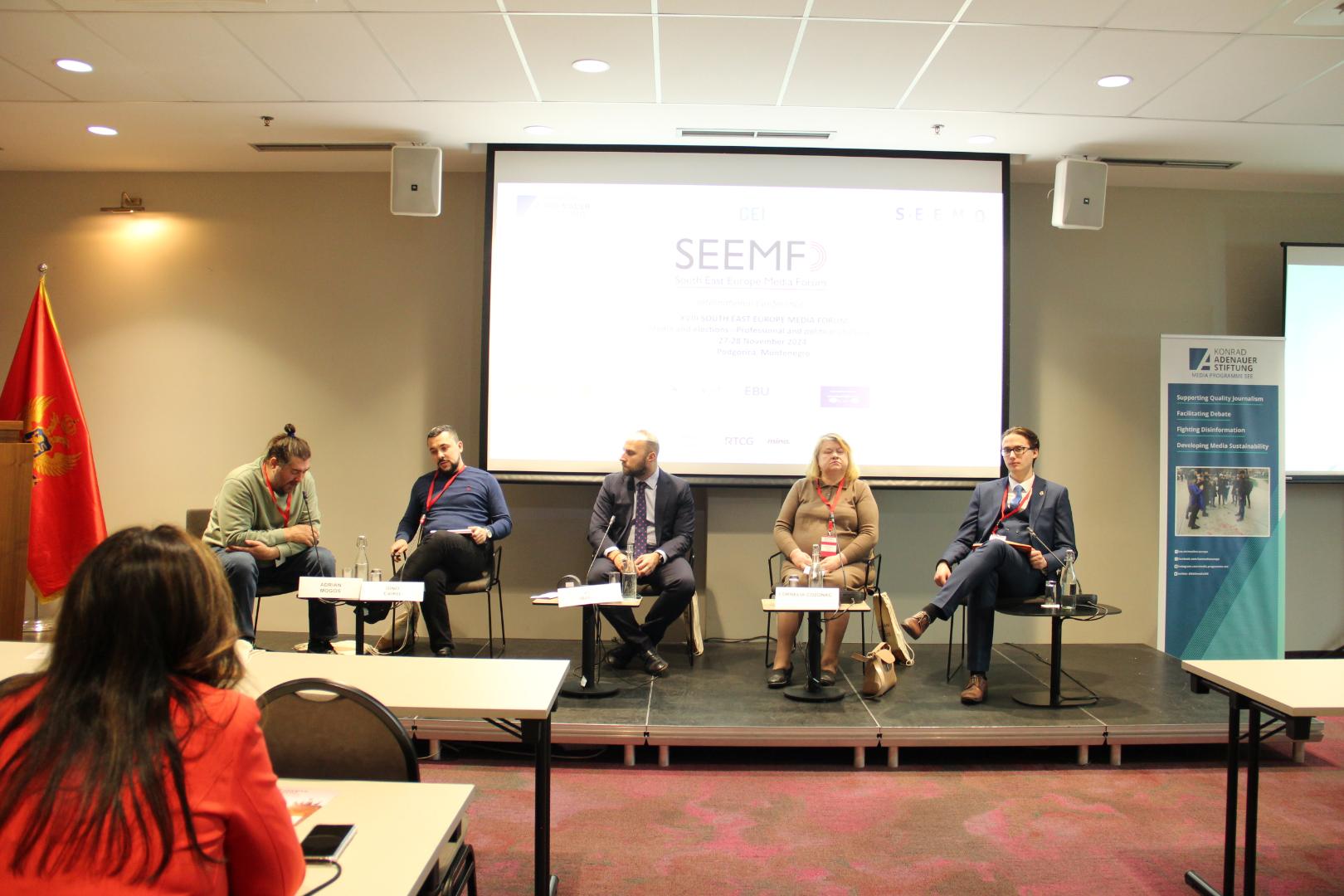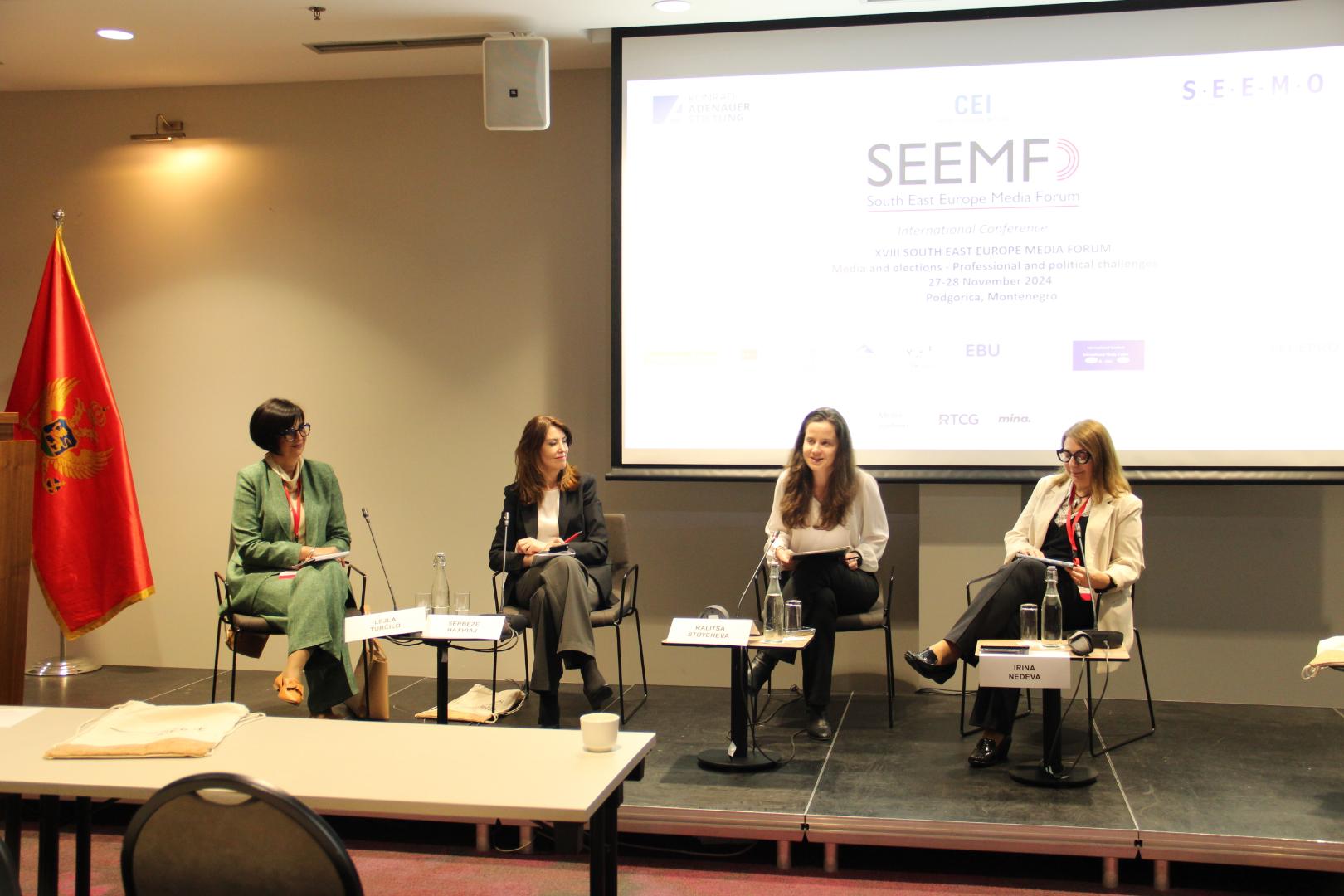A special welcome address was held by the Montenegrin President Jakov Milatović who reaffirmed the country’s commitment to press freedom, recognizing the challenges that journalists in the region face. He noted how “media funded by citizens has a special responsibility because it is their duty to never be propaganda tool for politicians but rather to always represent the citizens”.
The opening day concluded with a discussion dedicated to the media and politics in the host country and marked two decades since the assassination of the Montenegrin journalist Duško Jovanović.
On the second day, in a session on the media’s role in elections under different political systems, Alexandru Ion Giboi, Secretary General of the European Alliance of News Agencies (Bucharest / Brussels), Orest Dabija, Member of the Audiovisual Council of Moldova (Chişinau) and Barçin Yinanç, Journalist at T24 (Istanbul) provided comparative insights into how media functions under democratic and authoritarian regimes with Christoph Plate as moderator. The discussion highlighted the dual potential of media to hold policy makers responsible as well as to be a tool of political manipulation.
The issue of disinformation and its impact on public trust was a key focus, with Daniel Höltgen, Director of Communications and Spokesperson for the Secretary General and the Deputy Secretary General, Council of Europe (Strasbourg), Suzana Vasiljević, Media Adviser to the President of the Republic of Serbia (Belgrade), Zrinka Vrabec-Mojzeš, editor, Radio Nacional and Nacional weekly (Zagreb), and Vuk Vujnović, Delegation of the European Union to Montenegro (Podgorica) as speakers. They emphasized on the need for robust communication strategies to counter false narratives and support informed citizens.
Environmental issues and their portrayal in the media were also discussed, with Adrian Mogoș, investigative journalist (Bucharest), Dino Cviko, online magazine Žurnal (Sarajevo), and Jovana Georgievski, BBC News Serbia (Belgrade). The panelists underscored the importance of integrating environmental topics into political reporting. This session stressed the role of investigative journalism in uncovering the connections between policy decisions, environmental degradation, and public interest.
The last panel of the Forum explored the general role of the media in elections and its future in today’s changing world. The panelists included Prof. Lejla Turćilo, University of Sarajevo, Serbeze Haxhiaj, Radio Kosovo (Pristina), and Irina Nedeva, Bulgarian National Radio / Association of European Journalists (Sofia). The discussion was moderated by Ralitsa Stoycheva from the KAS Media Programme South East Europe. While the discussion reflected on the way social networks might influence the future of journalism, one of the highlights was media’s role as a gatekeeper of information to society.
The event concluded with reflections from Christoph Plate and Oliver Vujović, who stressed on the need for ongoing dialogue between media and politics.



